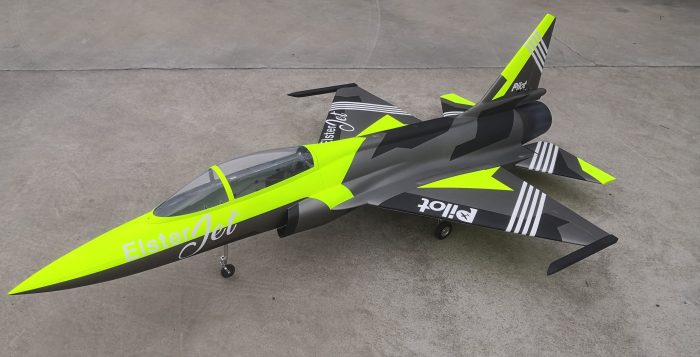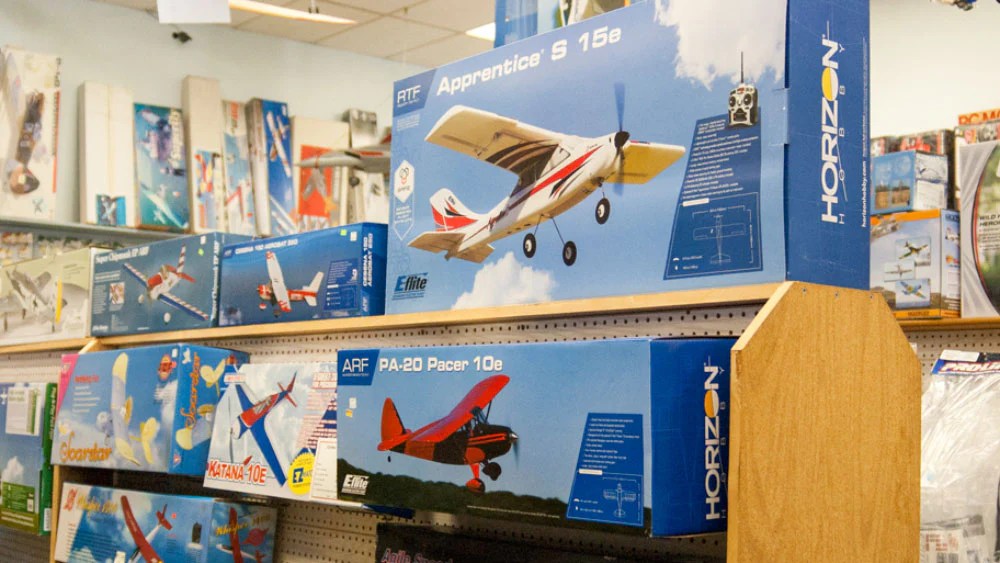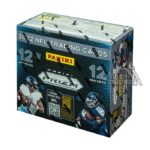Rc Airplane Hobby Stores represent a niche but passionate market segment, blending technological innovation with the enduring appeal of model aviation. These stores, ranging from small, independent shops to larger chains, serve a diverse clientele of hobbyists, from beginners captivated by the thrill of flight to seasoned enthusiasts seeking high-performance aircraft and specialized parts. Understanding the geographic distribution, product offerings, and evolving business models of these stores provides crucial insights into this dynamic sector.
This report analyzes the landscape of RC airplane hobby stores in the US, examining their geographic spread, the types of products they offer, their business models, and the key demographics of their customer base. We delve into the impact of technological advancements, particularly in drone technology, and explore the competitive dynamics and emerging trends within the industry. The analysis considers both brick-and-mortar stores and the growing online presence, highlighting the unique challenges and opportunities facing each.
Business Models and Services of RC Airplane Hobby Stores
The RC airplane hobby thrives on a diverse network of retailers, ranging from large national chains to small, independently owned hobby shops. Each model presents distinct advantages and disadvantages, shaping the overall market landscape and consumer experience. Understanding these differences is crucial for both businesses operating within this niche and consumers seeking specific products and services.
Business Model Comparison: Large Chains vs. Independent Shops
Large chain stores, such as those found in national retail conglomerates, typically leverage economies of scale to offer a wider selection of products at potentially lower prices. Their extensive supply chains allow for consistent stock replenishment and often broader marketing reach. However, this efficiency often comes at the cost of personalized customer service and specialized expertise. Staff may lack in-depth knowledge of specific products or the intricacies of RC airplane maintenance.
Conversely, smaller, independent hobby shops often cultivate a loyal customer base through personalized attention, specialized knowledge, and a strong community focus. They may offer more tailored advice and build stronger relationships with customers. However, their smaller scale can limit product selection and price competitiveness, particularly for less common or specialized items. Their inventory management may also be more susceptible to fluctuations in demand.
Services Offered by RC Airplane Hobby Stores
The services offered by RC airplane hobby stores are critical to the hobby’s sustainability and growth. These services extend beyond simple retail and foster a vibrant community.
- Repair and Maintenance: Many stores offer repair services for damaged aircraft, ranging from simple fixes to complex repairs requiring specialized tools and expertise. This is particularly valuable for beginners who may experience crashes or require assistance with intricate mechanical issues.
- Flight Instruction and Training: Some stores provide introductory flight lessons or workshops, helping newcomers learn the basics of piloting RC airplanes safely and effectively. This service is crucial for reducing the learning curve and fostering a positive experience for new hobbyists.
- Parts and Accessories: A wide selection of parts and accessories is essential, catering to various aircraft models and individual needs. This includes everything from propellers and motors to radio systems and specialized tools.
- Club Affiliations and Community Building: Many independent shops actively support or partner with local RC airplane clubs, providing a platform for hobbyists to connect, share knowledge, and participate in organized events. This community aspect is vital for the long-term health of the hobby.
Hypothetical Business Model: A Successful Online RC Airplane Hobby Store
A successful online RC airplane hobby store would need to combine the broad reach of e-commerce with the personalized service of a smaller shop. Targeting experienced hobbyists and enthusiasts would be key.
- Niche Focus: Specializing in a particular type of RC airplane, such as warbirds or scale models, could attract a dedicated customer base with specific needs and interests. This focused approach allows for specialized product knowledge and targeted marketing. For example, focusing solely on high-end, competitive racing drones would attract a different customer than one selling beginner-level trainer planes.
- High-Quality Product Photography and Detailed Descriptions: Online shoppers rely heavily on visuals and information. High-quality images and comprehensive product descriptions, including technical specifications and performance data, are crucial for building trust and driving sales.
- Community Forum and Online Support: An active online forum or community would foster engagement and provide a platform for customers to share experiences, ask questions, and receive technical support. This could be moderated by experienced staff or passionate hobbyists. This mirrors the community aspect of brick-and-mortar shops.
- Strategic Partnerships with Manufacturers and Distributors: Collaborating with manufacturers and distributors can secure competitive pricing and access to exclusive products. This strengthens the store’s position in the market and offers customers unique offerings.
- Targeted Marketing: Utilizing social media and online advertising to reach specific demographics and interest groups is crucial for driving traffic and building brand awareness. This might involve focusing on YouTube channels and forums dedicated to specific RC airplane niches.
Customer Demographics and Preferences: Rc Airplane Hobby Stores

The RC airplane hobby, while seemingly niche, boasts a surprisingly diverse customer base. Understanding the nuances of this demographic is crucial for hobby store owners seeking to optimize their offerings and marketing strategies. This analysis delves into the typical RC airplane enthusiast profile, examining key demographic characteristics and purchasing behaviors to provide a clearer picture of the target market.The typical RC airplane hobbyist is not easily defined by a single profile.
However, several trends emerge. While the hobby traditionally attracted a predominantly male demographic, a growing number of women are entering the field, drawn by the technical challenge and creative aspects of model building and flight. Age ranges widely, from teenagers experimenting with ready-to-fly models to retirees enjoying the leisurely pursuit of precision flying. Income levels also vary, reflecting the wide range of models and associated equipment available, from inexpensive starter kits to high-end, meticulously crafted aircraft and advanced radio systems costing thousands of dollars.
This diversity presents both opportunities and challenges for businesses catering to this market.
Typical Customer Profile
The typical customer exhibits a blend of technical aptitude, patience, and a passion for precision engineering. Many possess a strong interest in STEM fields, evidenced by a preference for understanding the mechanics of flight and the intricacies of radio control systems. They are often meticulous and detail-oriented, valuing high-quality components and reliable performance. While some customers are drawn to the competitive aspect of RC flying, participating in races and airshows, many others prioritize the recreational and therapeutic benefits, enjoying the solitude and challenge of mastering the skill of flight.
This duality highlights the need for marketing strategies that cater to both competitive and recreational segments.
Factors Influencing Purchasing Decisions
Several factors significantly influence the purchasing decisions of RC airplane hobbyists. Brand reputation plays a considerable role, with established brands like Spektrum, Futaba, and Horizon Hobby enjoying strong customer loyalty due to their history of producing reliable and high-performance products. Product features are equally important, with customers often prioritizing aspects such as flight stability, ease of control, and durability.
For example, the availability of features like GPS stabilization, autopilot systems, and advanced telemetry capabilities can significantly influence a purchase decision. Price is a factor, but it’s often secondary to quality and performance, especially among experienced hobbyists willing to invest in high-end equipment for enhanced flying experience.
Effective Marketing Strategies
Effective marketing within the RC airplane community requires a nuanced understanding of the target audience. Online communities and forums, such as Reddit’s r/rccars and various dedicated RC airplane forums, offer significant opportunities for targeted advertising and engagement. Sponsoring RC airplane events and competitions allows brands to directly reach passionate hobbyists. Furthermore, creating high-quality video content showcasing the capabilities of their products, featuring professional pilots performing impressive maneuvers, is a highly effective method to attract potential customers.
This approach, combined with social media campaigns on platforms like YouTube and Instagram, can generate significant brand awareness and drive sales. For example, a campaign featuring a time-lapse video of a model aircraft being built, followed by footage of its maiden flight, can resonate deeply with hobbyists who appreciate the craftsmanship and technical aspects of the hobby. The expected outcome of such a strategy is increased brand visibility, stronger customer engagement, and ultimately, higher sales conversion rates.
The Impact of Technology on the RC Airplane Hobby Industry

The RC airplane hobby, once a niche pursuit reliant on intricate mechanical design and skilled craftsmanship, has been profoundly reshaped by technological advancements. The convergence of computing power, miniaturization, and readily available information has democratized access to the hobby while simultaneously presenting both opportunities and challenges for its future. The impact is multifaceted, ranging from the rise of sophisticated flight controllers to the evolving role of online communities in shaping the hobbyist landscape.
Advancements in Drone Technology and Their Impact on the RC Airplane Market
The burgeoning drone market, driven by consumer demand and technological breakthroughs, has had a significant impact on the RC airplane hobby. On one hand, the accessibility and affordability of readily available drone technology have attracted a new generation of enthusiasts to the world of aerial flight. Pre-built, easily programmable drones offer a lower barrier to entry compared to the more complex construction and tuning traditionally associated with RC airplanes.
This has led to increased participation and broadened the hobby’s appeal. Conversely, the market saturation from consumer-grade drones has, in some instances, diverted resources and attention away from the more specialized and performance-oriented RC airplane market. The increased competition for consumer spending has forced RC airplane manufacturers to innovate and offer increasingly sophisticated features to maintain their market share.
Furthermore, the regulatory landscape surrounding drones, particularly concerning safety and airspace restrictions, has indirectly affected the RC airplane community, with some regulations inadvertently impacting access to flying areas previously enjoyed by RC airplane enthusiasts.
The Role of Online Communities and Forums in Shaping Customer Preferences and Disseminating Information
Online forums and communities have become indispensable hubs for RC airplane enthusiasts. These platforms serve as vital channels for knowledge sharing, troubleshooting, and the dissemination of product reviews and modifications. The collective wisdom of experienced hobbyists allows newcomers to learn from the successes and failures of others, accelerating the learning curve and reducing the risk of costly mistakes.
Moreover, these online communities actively shape customer preferences by driving demand for specific products, brands, and even influencing design trends. The popularity of certain modifications or upgrades, often showcased through videos and detailed online tutorials, directly impacts market demand and drives innovation within the industry. The rapid spread of information and the ability to connect with like-minded individuals globally have transformed the hobby from a largely solitary pursuit to a vibrant and interconnected community.
A Timeline of Significant Technological Advancements in RC Airplane Technology (Past 20 Years), Rc Airplane Hobby Stores
The past two decades have witnessed a remarkable evolution in RC airplane technology. This progress has been driven by advancements in several key areas, resulting in lighter, more powerful, and more sophisticated aircraft.
The following timeline highlights some key developments:
- 2003-2005: The widespread adoption of 2.4GHz radio technology marked a significant leap forward, eliminating frequency interference issues that plagued older systems. This allowed for more reliable control and the ability to fly multiple aircraft simultaneously in close proximity. The impact was a substantial increase in the number of hobbyists able to fly safely and efficiently.
- 2008-2010: The introduction of brushless motors and electronic speed controllers (ESCs) revolutionized power systems. These advancements provided significantly increased efficiency, power-to-weight ratios, and longer flight times compared to brushed motor systems. This spurred the development of more powerful and agile aircraft.
- 2012-2015: The rapid development and miniaturization of flight controllers, incorporating sophisticated sensors and algorithms, enabled the creation of increasingly autonomous and stable aircraft. Features like GPS stabilization and automatic return-to-home functionalities became increasingly common, making RC flight more accessible to a broader range of users. This significantly lowered the barrier to entry and boosted participation.
- 2018-Present: The integration of advanced flight simulation software and hardware, coupled with the rise of 3D printing, has empowered hobbyists to design, build, and test custom aircraft with unprecedented levels of precision and customization. This has fostered a culture of innovation and experimentation within the community.
The RC airplane hobby store market, while niche, demonstrates resilience and adaptability. The ongoing integration of technology, coupled with the enduring passion of hobbyists, suggests a promising future. However, navigating the competitive landscape, adapting to evolving consumer preferences, and leveraging online channels will be crucial for success. Stores that effectively cater to the needs of both novice and expert enthusiasts, offering a combination of products, services, and community engagement, are best positioned for growth in this dynamic sector.

